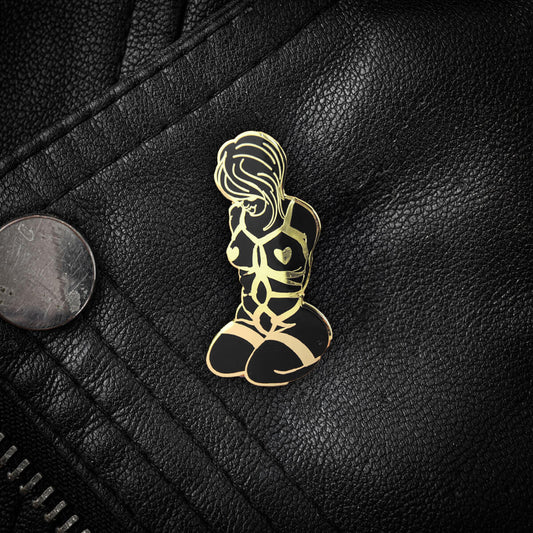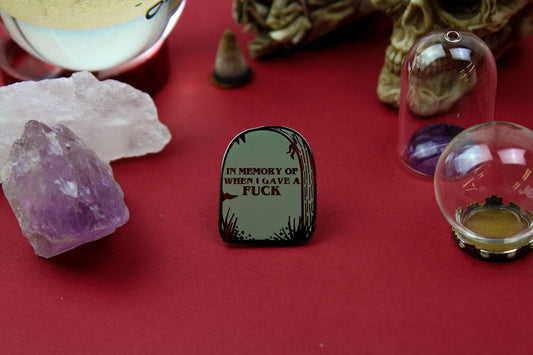
How Do Occultists Interpret Dreams and Visions?
Share
In occultism, dreams and visions aren't just background noise - they're considered powerful connections to hidden knowledge. For many occultists, dreams act as a bridge, linking the conscious mind with the subconscious, revealing insights and perspectives that might be buried beneath daily thoughts.
Some believe that dreams reach even further, connecting us to other dimensions or unseen forces. Visions, often experienced through meditation or altered states, add another layer to this. These moments are seen as chances for guidance or hidden truths to come to light. Occultists see both dreams and visions as windows into a deeper understanding of themselves and their connection to a larger, often hidden, world.
Common Methods of Dream Interpretation in Occultism
For occultists, dream interpretation is anything but one-size-fits-all. The approach varies, depending on each dream's tone, imagery, and even the cosmic influences surrounding it. Here's how occultists break it down:
Many start with symbols. In occultism, recurring images - whether animals, colours, or elements - carry layers of meaning. A snake might suggest change or transformation, while water often represents emotional depth. These symbols are treated as clues, each one adding a new layer to the dream's message.
Some occultists skip the symbols and go straight to how the dream feels. Here, interpretation is based on the emotions and reactions the dream stirs up. Rather than following set rules, this approach sees dreams as reflections of inner thoughts or unresolved feelings, relying on intuition to make sense of them.
For others, the stars play a major role. Occultists who follow astrology believe that planetary movements or lunar phases can shape dream content. A dream during a full moon, for example, might be seen as heightened or influenced by lunar energy. Linking dreams to these cosmic forces adds another layer to their meaning.
These methods give occultists a way to make dream interpretation personal, blending intuition, symbolism, and sometimes even the cosmos, for insights that resonate deeply with each dreamer.
Tools and Techniques Used in Interpretation
Photo by
Jen Theodore on
Unsplash
Occultists don't just rely on memory to interpret dreams - they often use specific tools and techniques to uncover hidden layers of meaning. From journaling to divination, these methods help them connect dreams with deeper insights.
Keeping a dream journal is one of the most popular practices in occult dream work. By recording dreams in detail, occultists can look for patterns, recurring symbols, or themes over time. This technique helps bring subtle connections to light, revealing messages that might otherwise go unnoticed.
Many occultists use tools like tarot cards, pendulums, or even crystal balls to gain clarity on a dream's meaning. A tarot spread might offer new perspectives on a puzzling dream, while a pendulum can help confirm an interpretation. These tools add depth and can point the way when a dream feels especially significant.
Techniques like lucid dreaming - where the dreamer is aware they're dreaming - and visualisation allow occultists to interact with their dreams in real time. By controlling the dream, they can explore specific symbols or seek answers directly, adding an active element to what is usually a passive experience.
Some interpret dreams based on the current planetary alignments or moon phases, believing these cosmic shifts can influence the nature of dreams. A dream during a full moon or an eclipse might carry more weight or be seen as connected to larger, universal forces.
These tools and techniques give occultists ways to go beyond surface-level interpretations, connecting dreams to a broader network of personal and cosmic insights. For those invested in this practice, dreams are more than fleeting thoughts - they're a meaningful part of their inner and outer worlds.
Personal and Spiritual Significance
For occultists, dreams and visions go beyond casual curiosity - they're seen as personal, even spiritual, signposts. Each dream is thought to carry meaning that connects deeply with the dreamer's inner world or spiritual journey, making dream interpretation an essential part of self-discovery.
Many occultists view dreams as reflections of their current state of mind. Whether it's a repressed emotion, a lingering worry, or an unacknowledged desire, dreams are believed to bring these hidden parts of ourselves to light. By understanding these messages, they gain insight into areas of life that might need more attention or balance.
Beyond self-reflection, some occultists see dreams as stepping stones for spiritual growth. Dreams are treated as messages from other realms or spiritual guides, offering guidance on one's path or highlighting lessons yet to be learned. These "spiritual nudges" are often seen as invitations to explore deeper questions about purpose and the soul's journey.
For some, dreams aren't just reflections of the present - they might hold glimpses of past lives or possible futures. Occultists who believe in reincarnation may interpret certain dreams as echoes from a previous existence. Meanwhile, others see symbolic hints of what's to come, using dreams to guide decisions or prepare for potential outcomes.
In occult practices, dreams aren't just idle images - they're maps to understanding the self, navigating personal challenges, and embracing spiritual growth. Occultists treat each dream as a piece of a larger puzzle, connecting personal meaning with spiritual insight in a way that feels deeply relevant to their lives.














